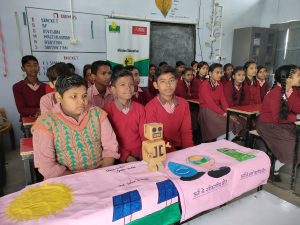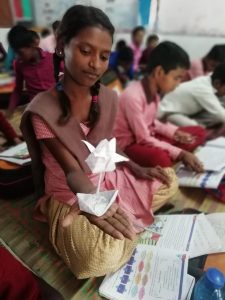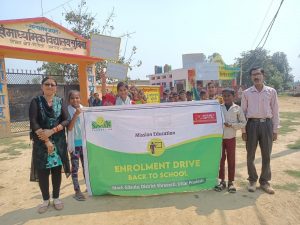In 2023, Aditya Birla Capital Foundation partnered with Smile Foundation to enhance primary healthcare access across four key locations in India: Agra, Bhopal, Madurai and Warangal. This initiative aimed to address significant gaps in healthcare by tackling shortages of health professionals, improving preventive care, and alleviating financial barriers to medical treatment for underserved communities.
The Mobile Medical Units (MMUs) played an important role in this effort, offering a range of services including outpatient consultations, point-of-care tests and educational activities focused on health and wellness. By delivering comprehensive care—covering curative, preventive and promotive aspects—the MMUs have effectively reached around 154,000 people by March 2024.



The major interventions were to set up digital classes with solar panels power back up, training teachers in pedagogy and using the digital medium. Infrastructure of schools was improved for conducive learning environment. Focused interventions to improve the numeracy and literacy and opportunities of experiential learning motivated the students. Efforts through enrolment drive were also done to bring back the students dropped during Covid. In alignment with UP Government’s objective to focus on enrolment of children and bringing children back to school this project also focuses on ‘Education Recovery’ of the children who missed more than half of their in-person schooling over the past two years which caused huge learning loss. Working closely with the school functionaries, government officials and the communities in the both Aspirational districts, from last four years, the following are the focus areas for future interventions:
•To improve the enrollment, attendance and retention of the students
•To provide access to quality education for the students to improve the learning levels
•To promote girl child education and increase their participation
•Infrastructure development of schools especially toilets to improve girl children enrollment and retention in schools
•Awareness on WASH (Water Sanitation, & Hygiene) is required amongst students and community to address well-being
•Interventions required to make the girls aware on Menstrual hygiene and Nutrition. Awareness for better practices in Adolescent health and Nutrition amongst girls and women in community with sustainable initiatives
•Teachers’ capacity building for sustainability of the quality interventions
•Involvement of community stakeholders through awareness and training on Education Governance to take the ownership of education